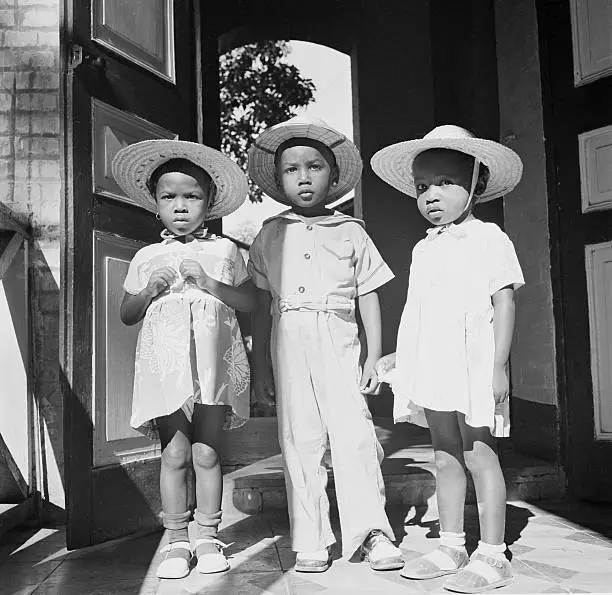For years, the presence of radiant blue eyes among some Haitians has sparked curiosity. What's the story behind this trait? How did Poles and Napoleon influence Haiti's history? To find out, let's explore Haiti's lesser-known history as the first black republic in 1804. Beyond its fight for independence, this article reveals the often-overlooked role of Poles in Haiti's nation-building. Join us on a journey to uncover the fascinating narrative of this historic republic's genesis.
Polish Soldiers in Haiti
Our exploration of this captivating narrative begins in the early 19th century, when Poland faced partition. Many Poles sought opportunities to champion freedom and justice abroad, including those who enlisted in Napoleon Bonaparte's army. In 1802, Napoleon dispatched Polish troops to Haiti to quell a rebellion against French colonial rule.
The Awakening of Sympathy
Upon their arrival in Haiti, the Polish soldiers initially adhered to their orders to quell the Haitian revolt. However, what unfolded on the island was an uprising fueled by an impassioned yearning for independence — a resolute battle against oppression and the aspiration for a liberated nation. Polish soldiers initially followed orders to suppress the Haitian revolution but were moved by the passionate quest for independence.
Changing Sides
Many Polish soldiers, moved by the Haitian people's struggle, saw parallels in their fight for a free Poland and Haitians' quest for liberty. As a result they abandoned their French allies, joining Haitian revolutionaries. This act of solidarity marked a turning point in the Haitian Revolution's history.
Fighting alongside Haitian leaders like Toussaint Louverture and Jean-Jacques Dessalines, Polish soldiers played a pivotal role. Their military expertise and unwavering commitment significantly contributed to the Haitian forces' eventual success in the battle for independence. Together, this united front achieved victory.
Haitians' Gratitude
Haiti's leaders and citizens warmly embraced the Polish soldiers for their vital contribution to the fight for independence. After that the bond had a lasting impact on the nation. Some Polish soldiers decided to remain in Haiti, becoming part of the community. This is why some Haitians still have blue eyes today, serving as a visible testament to this historic alliance.
Haitians not only valued the Polish support in their battle for independence but also integrated Poles into their constitution. In the 1805 Haitian constitution, it was declared that Poles were officially recognized as "black" citizens, equal in status to all Haitians.
Some may question this
Haiti's population primarily consists of individuals of African descent, and their rich cultural heritage reflects the African diaspora. However, a small percentage of Haitians possess striking blue eyes, an uncommon trait among people of African ancestry. Approximately 3-5% of the global population has blue eyes, more frequently in individuals of European descent. The presence of blue eyes among Haitians remains an intriguing anomaly. Some attribute it to the intermingling of Polish and Haitian bloodlines during the Haitian Revolution, yet further research is essential to comprehensively understand the genetic factors involved.
The Legacy of Unity
The presence of Haitians with blue eyes serves as a tangible reminder of the alliance between Polish soldiers and Haitian revolutionaries during the struggle for independence. Above all this shared history reflects the universal pursuit of freedom. In addition the enduring spirit against oppression, and the power of unity in adversity.
This narrative illustrates how Poles, supported Haiti's journey for independence. In conclusion transcending nationality and race to contribute to its identity as the first black republic.

